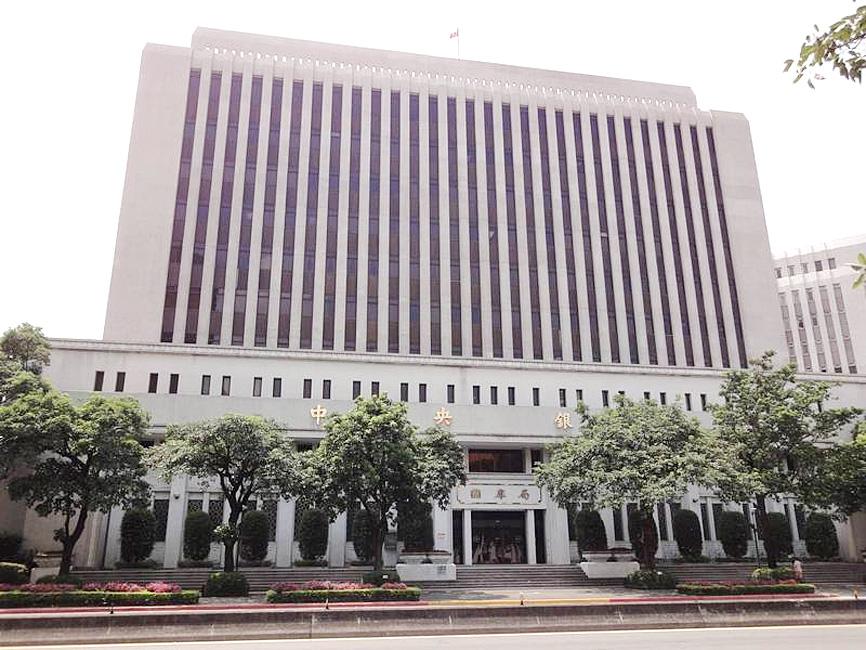The central bank met with eight local lenders on Thursday to call for restraint in real-estate financing, which approached a record high in September, sparking concern that it might drive up property prices.
The meeting came less than a week after the monetary policymaker’s talks on Friday last week with six mortgage operators to convey its concern over loose lending.
“Banks should better manage their resources to prevent an overflow of credit to the real-estate market, which indirectly encourages property speculation and land hoarding, and contributes to property price hikes,” the bank said in a statement.

Photo: Wu Chi-lun, Taipei Times
Government data showed that commercial property and land deals last quarter soared at paces rarely seen in recent years, bucking sharp declines around the world amid the COVID-19 pandemic.
Property analysts have attributed the fast pickup to Taiwan’s stable economy and quick control of the outbreak, with low interest rates and ample liquidity also lending support.
The central bank in March cut the rediscount rate to a record low of 1.125 percent to ease households’ financial burden, but that inadvertently became an incentive for property investment after Taiwan emerged from the outbreak in May.
As of September, real-estate lending stood at 35.8 percent of total outstanding loans, close to the historical peak of 37.9 percent, the central bank said, adding that several banks are approaching the limits for mortgage, construction and land financing.
Local banks have offered generous loans at cutthroat borrowing costs and with protracted grace periods, as they vie for customers, the bank said.
Lax lending includes unreasonable loan-to-value ratios, failing to monitor the progress of property developments and easy loans for unsold housing units, it said.
Such practices encourage land hoarding and excessive leveraging that are pushing up property prices, posing a threat to the health of the nation’s property market and financial system, the bank said.
“Lenders must take up their social responsibility and guide funds to real investment that can create job opportunities and boost income rather than overly concentrating on property lending,” the bank said.
Small and medium-sized companies affected by the pandemic can use help from financial institutions, it said.
Central bank Deputy Governor Chen Nan-kuang (陳南光) has several times expressed concern over the formation of a property bubble and pressed for pre-emptive measures to reverse the trend.
The central bank said it has sent officials to visit lenders to see if they exercise due caution when handling real-estate loan requests.
It denied that such visits are “formal inspections.”

UNCERTAINTY: Innolux activated a stringent supply chain management mechanism, as it did during the COVID-19 pandemic, to ensure optimal inventory levels for customers Flat-panel display makers AUO Corp (友達) and Innolux Corp (群創) yesterday said that about 12 to 20 percent of their display business is at risk of potential US tariffs and that they would relocate production or shipment destinations to mitigate the levies’ effects. US tariffs would have a direct impact of US$200 million on AUO’s revenue, company chairman Paul Peng (彭雙浪) told reporters on the sidelines of the Touch Taiwan trade show in Taipei yesterday. That would make up about 12 percent of the company’s overall revenue. To cope with the tariff uncertainty, AUO plans to allocate its production to manufacturing facilities in

TAKING STOCK: A Taiwanese cookware firm in Vietnam urged customers to assess inventory or place orders early so shipments can reach the US while tariffs are paused Taiwanese businesses in Vietnam are exploring alternatives after the White House imposed a 46 percent import duty on Vietnamese goods, following US President Donald Trump’s announcement of “reciprocal” tariffs on the US’ trading partners. Lo Shih-liang (羅世良), chairman of Brico Industry Co (裕茂工業), a Taiwanese company that manufactures cast iron cookware and stove components in Vietnam, said that more than 40 percent of his business was tied to the US market, describing the constant US policy shifts as an emotional roller coaster. “I work during the day and stay up all night watching the news. I’ve been following US news until 3am

COLLABORATION: Given Taiwan’s key position in global supply chains, the US firm is discussing strategies with local partners and clients to deal with global uncertainties Advanced Micro Devices Inc (AMD) yesterday said it is meeting with local ecosystem partners, including Taiwan Semiconductor Manufacturing Co (TSMC, 台積電), to discuss strategies, including long-term manufacturing, to navigate uncertainties such as US tariffs, as Taiwan occupies an important position in global supply chains. AMD chief executive officer Lisa Su (蘇姿丰) told reporters that Taiwan is an important part of the chip designer’s ecosystem and she is discussing with partners and customers in Taiwan to forge strong collaborations on different areas during this critical period. AMD has just become the first artificial-intelligence (AI) server chip customer of TSMC to utilize its advanced

Six years ago, LVMH’s billionaire CEO Bernard Arnault and US President Donald Trump cut the blue ribbon on a factory in rural Texas that would make designer handbags for Louis Vuitton, one of the world’s best-known luxury brands. However, since the high-profile opening, the factory has faced a host of problems limiting production, 11 former Louis Vuitton employees said. The site has consistently ranked among the worst-performing for Louis Vuitton globally, “significantly” underperforming other facilities, said three former Louis Vuitton workers and a senior industry source, who cited internal rankings shared with staff. The plant’s problems — which have not